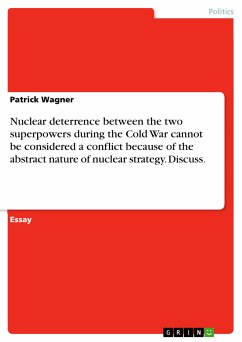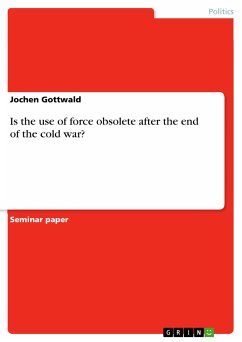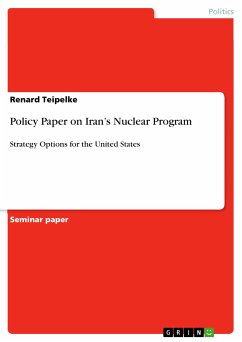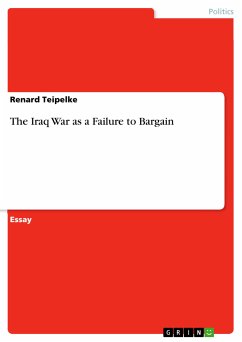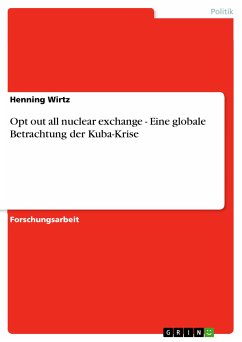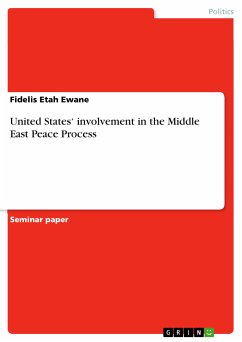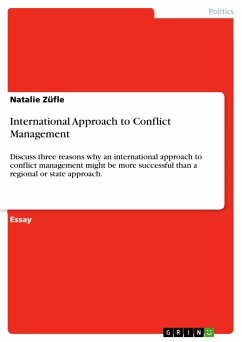Essay from the year 2003 in the subject Politics - Topic: Peace and Conflict, Security, grade: 1+ (A), University of Kent (Department of Politics and International Relations), language: English, abstract: When the USA dropped two nuclear bombs on the Japanese cities of Nagasaki and Hiroshima in August 1945, the world witnessed the first and so far the last use of these weapons. Their devastating effect led to a worldwide fear of atomic bombs, but could not, however, prevent a number of states from developing these fatal devices. In fact, the two superpowers engaged in the subsequent arms race during the Cold War, which, in the end, left both with a nuclear arsenal big enough to destroy the entire world several times over. Although these weapons exist in huge amounts, they have never been used for military purposes since. This distinction is important to make, because the superpowers did make use of their nuclear arsenal on a political level, namely with the strategy of nuclear deterrence. Based on the US assurance that a Soviet attack on the USA or its allies would be answered with massive retaliation, this strategy has prevented a nuclear war. By looking at the concept of nuclear deterrence in more detail this essay will argue that nuclear deterrence must be seen as a conflict, even though arguments can be found underlining the view that it is not. It is certainly true that the abstract nature of nuclear strategy makes an explanation in the traditional Clausewitzian sense of conflict impossible. However, recognising the fact that the arrival of the nuclear bomb has changed the purpose of military strategy fundamentally, namely from the purpose of winning wars to the purpose of preventing wars , inevitably leads to a new concept of conflict. Nuclear strategy has introduced a shift of strategic thinking away from the military towards politics. This does of course mean that ‘conflict’ now has to be defined in political terms. ‘Conflict’ can no longer only be seen as the confrontation of armies in the battlefield but must include the threat of use of force, as the political dimension of conflict, as well.
Bitte wählen Sie Ihr Anliegen aus.
Rechnungen
Retourenschein anfordern
Bestellstatus
Storno

